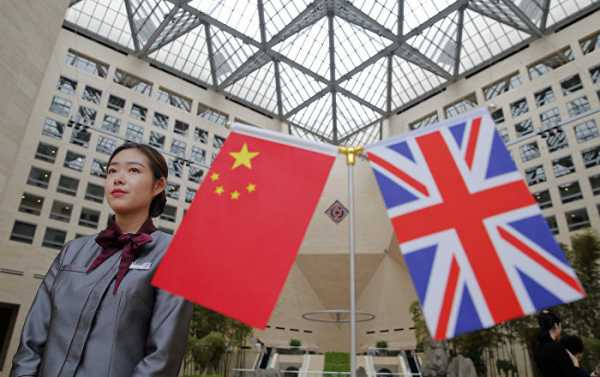
Beijing is calling for an “orderly” Brexit and a greater openness of the EU market to Chinese investment and trade; the potential fallout over a “no deal” Brexit – along with the new EU regulations – are seen as harmful to Chinese business interests in Europe.
Kristian Rouz — The Chinese Foreign Ministry has expressed hope that Britain and the EU would be able to strike a Brexit deal in the near future, and called for a greater “openness” of the European economy to Chinese investment as well.
In a statement Tuesday, Beijing suggested the UK should approve the proposed Brexit deal, which has stirred resentment among the majority of British MPs. The Chinese Foreign Ministry said it is following the Brexit process closely, and also expressed concern that a “no deal” Brexit could cause unnecessary turmoil in financial markets across the globe.
Chinese officials added that a “hard Brexit” could negatively affect China’s business interests on both shores of the English Channel.
“China hopes to see Brexit proceed in an orderly fashion and stands ready to advance China-EU and China-UK relations in parallel”, the Chinese Foreign Ministry said.
The statement comes after a series of major mergers and acquisitions of European assets by Chinese companies, most notably, in the German automotive industry.
China’s urge to increase investment on the European continent is also particularly relevant in the wake of trade tensions with the US, where two separate probes — known as the Section 301 and Section 232 — have limited the scope for a potential increase in investment from China in the future due to what US officials say are national security concerns.
The EU and China, for their part, have had a rocky trading relationship over the past few years. However, Beijing appears to view Brexit as the main risk to its assets in Europe, as a potential wipe-out of capital from Europe’s main stock indices in case of a “no-deal” Brexit would also mean a reduction in the capitalisation of European companies — including those China has stakes in.
The EU is also China’s largest trading partner. However, from the EU perspective, the most important market is in the US, while China comes second — meaning Beijing has a particularly strong interest in growing its presence in Europe.
“China hopes that the EU will keep its investment market open, reduce and eliminate investment hurdles and discriminatory barriers, and provide Chinese companies investing in Europe a fair, transparent and predictable policy environment and protect their legitimate rights and interests”, Chinese officials said.
In other words, China is urging for free and unrestricted trade with the EU. It remains unclear, however, whether officials in Brussels are willing to eliminate some of the key restrictions on trade, such as tariffs, subsidies, and regulatory regimes aimed at protecting European industries from external risks.
Such risks include dumping and uncompetitive subsidising for the purpose of gaining advantage in the open market.
However, the EU has also been pressuring China to open up its own domestic market to foreign companies.
China said it would ensure a “stable, fair, transparent, law-based and predictable business environment that protects the legitimate rights and interests of foreign investment and treats Chinese and foreign firms registered in China as equals”.
While this might suggest that Beijing is showing signs of caving in to the pressure from Brussels, Chinese officials might also seek to capitalise on the possible downside risks facing the EU in the face of Brexit.
For one, possible economic turmoil in the UK and EU in case of a “hard Brexit” could render both sides more inclined to strike trade deals with third-party countries — such as China. Chinese companies would also be able to buy European assets at a significant discount.
Additionally, some British Conservative Party MPs say the Brexit deal as proposed currently would effectively maintain the status quo on the European continent by keeping the UK in the EU customs union.
This would significantly reduce the risks to Chinese business interests in Europe.
However, the EU introduced new rules on foreign investment last month, which some say might be mirroring those unveiled after the Section 232 and 301 probes in the US. Brussels said foreign investments — particularly those from China — would be subject to additional and thorough scrutiny.
This, adding to Brexit-related concerns, could potentially stave off China’s economic influence in Europe. But for now, the deliberations over Brexit continue, and the Sino-American talks on trade are gradually advancing as well.
The results of ongoing talks are expected to determine what changes the international trading system will undergo as soon as next year.
Sourse: sputniknews.com






